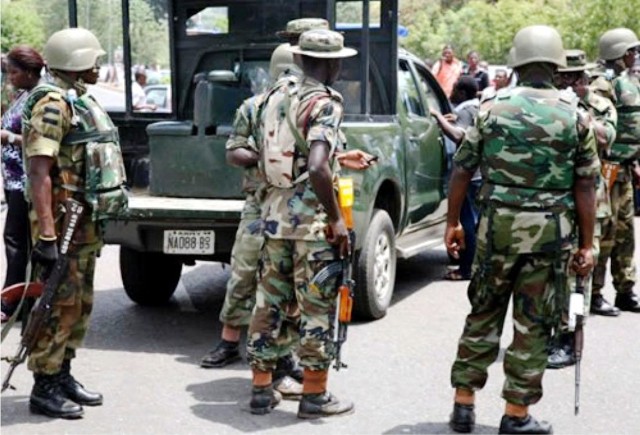Opinion
Well Done, Your Excellency But…
On October 25, 2007 the Supreme court gave a landmark judgement that over-turned the election of former governor of Rivers State, Sir Celestine Omehia and declared Rt. Hon. Rotimi Chibuike Amaechi as the duly elected governor of the state.
Personally, I was skeptical about the coming into office of Amaechi. My fear was based on my personal and sampled opinion of the people around me concerning the personality of the governor in terms of bringing the dividends of democracy to the people.
However, after few months of his stay in office, we began to notice development strides in Rivers State. Some of these developmental efforts include; A Microsoft loan programme aimed at empowering the people, the campaign against street trading and hawking and so on. There has also been serious effort to return the city of Port Harcourt to her garden city status through the beautification of some major roads in the city.
In the area of education and health care, there has been massive investments. In fact, one can say that in this administration, education and health care sectors have been the major benefactors of the government attention. The government recently commissioned 60 heath care centres in 60 communities and will soon complete 150 primary schools for 150 communities.
Rivers people will forever be grateful to this administration. Security has also received some attention. The level of criminal activities has greatly reduced. I remember there was a time when one can hardly move freely under the Rumuola flyover bridge for fear of being dispossessed of valuables. But today, with the beautification of the area and provision of street lights on Rumuola road, criminal activities in the area and many other areas have reduced. The town hall meetings of this administration and the public accountability forum aimed at meeting the people in their localities and at the same time disclosing how much entered the state coffers has never happened in the State. Indeed, Rivers money is working for Rivers people.
However, Your Excellency, there are still so much work to be done. It is important to note that provision of necessary basic amenities may not really translate into wholesome development of the people. If there is no easy access to justice, then these basic amenities will be enjoyed by few who are in power. Justice dispensation is very important to boost the confidence of the people to go about their normal businesses without being intimidated by anyone. Lack of easy access to justice has made it difficult for Rivers people and people from other States especially those who are yet to own their own houses suffer exploitation in the hands of their landlords.
The current fight by this administration against street trading, hawking and indiscriminate erection of temporary structures will not achieve its target if nothing is done to check the massive exploitation being experienced by the poor in the society in the process of securing both business and living apartments. The difficulty and the high cost of acquiring a business apartment is also a major factor why people hawk on the street. Other reasons include: poverty, economic hardship etc. This administration had signed into law the act prohibiting illegal fees and levies being collected from those intending to acquire a piece of land for developmental purposes. These illegal fees and levies are also collected from people who rent apartments for residential and business purposes. They are called “drink money”.
Rivers State is said to have the highest cost of legal services in Nigeria. With this situation, it simply means that only the rich can get justice while the poor majority are left at the mercy of the rich.
The state is well positioned to do well in the area of revenue collection. However, despite the efforts put into ensure proper collection of the revenue, the revenue base of the State is still grossly inadequate. This has made the State Governor to propose and sign into law, the social service levy act. According to the governor, it is to make companies and rich of the state to make a contribution to support free education and health care for the less privileged ones in the state.
Your Excellency, there is no need to have extra levy. Instead, remove all middle men involved in revenue collection in the State. Let there be an effective process of paying levies into State’s purse through the banks. This will help the state to have more than enough funds to take care of education and health for the less privileged ones in the State.
Kingsley resides in Port Harcourt.
Izejiobi Kingsley
Opinion
Ndifon’s Verdict and University Power Reform

Opinion
As Nigeria’s Insecurity Rings Alarm

Opinion
The Girl Who Didn’t Dance
-

 Featured4 days ago
Featured4 days agoOil & Gas: Rivers Remains The Best Investment Destination – Fubara
-
Nation5 days ago
MOSIEND Calls For RSG, NDDC, Stakeholders’ Intervention In Obolo Nation
-
Nation5 days ago
Hausa Community Lauds Council Boss Over Free Medical Outreach
-

 Nation5 days ago
Nation5 days agoOgoni Power Project: HYPREP Moves To Boost Capacity Of Personnel
-
Nation5 days ago
Association Hails Rivers LG Chairmen, Urges Expansion Of Dev Projects
-
Nation5 days ago
Film Festival: Don, Others Urge Govt To Partner RIFF
-

 News5 days ago
News5 days agoNDLEA Arrests Two, Intercepts Illicit Drugs Packaged As Christmas Cookies
-

 News5 days ago
News5 days agoTroops Rescue 12 Abducted Teenage Girls In Borno

